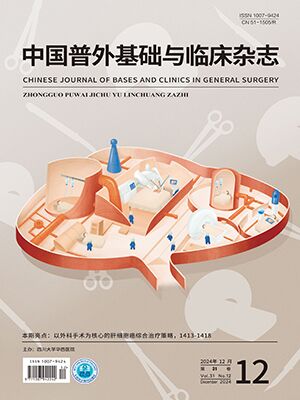Objective To investigate the anatomic factors on iatrogenic biliary injury for elevating surgical safety and decreasing incidence of iatrogenic biliary injury. Methods The clinical data of 39 patients with iatrogenic biliary injury and anatomic varied factors in operation records from January 2000 to August 2009 in The Second Affiliated Hospital of Kunming Medical College were analyzed retrospectively. Results Thirty-nine patients with iatrogenic biliary injury were divided into 5 types according to Bismuth typing, including type Ⅰ 6 cases, type Ⅱ 19 cases, type Ⅲ 8 cases, type Ⅳ 5 cases, and type Ⅴ 1 case. Anatomic varied factors included bile duct variation in 15 cases, cystic duct abnormal position in 10 cases, vascular variation in 13 cases, and porta hepatis rotation in 1 case. Biliary injuries were found during operation in 6 cases, 24—72 h after operation in 16 cases, and stenosis of biliary duct was found in 17 cases 3 months to 2 years after operation. Two cases were dead because of liver function failure or myocardial infarction, withdraw was 4, the other patients were cured. Conclusion Anatomic factors are important objective elements in iatrogenic biliary injury, paying attention to abnormal anatomic factors can effectively prevent iatrogenic biliary injury.
Citation: GE Jiayun,ZOU Hao,LI Tianzhu,WANG Lin,LUO Ping. Anatomic Factors Associated with Iatrogenic Biliary Injury. CHINESE JOURNAL OF BASES AND CLINICS IN GENERAL SURGERY, 2010, 17(6): 581-585. doi: Copy
Copyright © the editorial department of CHINESE JOURNAL OF BASES AND CLINICS IN GENERAL SURGERY of West China Medical Publisher. All rights reserved




